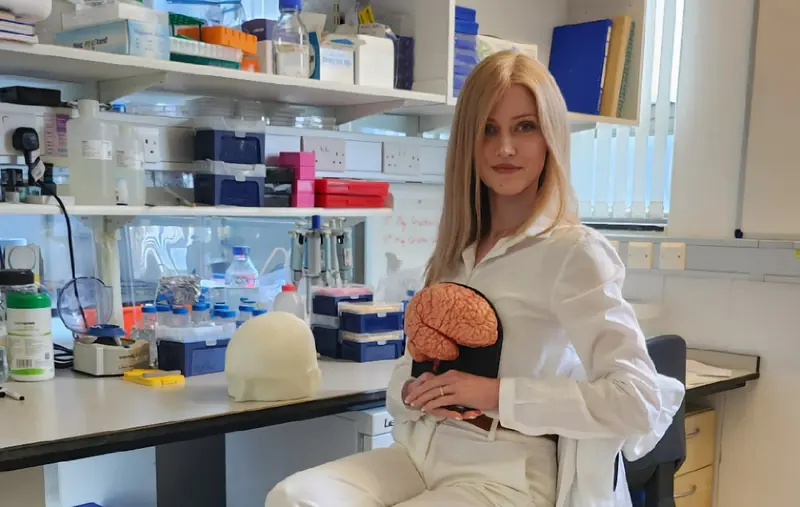Further funding for pioneering approach to slow or stop Parkinson’s
We’ve awarded Cellestial Health £55,000 to continue exploring networks of brain cells that may hold answers for new treatments for Parkinson’s.
There are many different types of cells in the brain. We know that in Parkinson’s, brain cells that produce dopamine become damaged and start to die over time. However, it’s possible that other types of brain cells could also become damaged as the condition gets worse. They may even play a role in why dopamine cells become damaged.
Dr Nataly Hastings at Cellestial Health is leading a team of researchers to explore how a previously overlooked type of brain cell, called an astrocyte, could be involved in Parkinson’s. Astrocytes are star-shaped brain cells that form large networks in the brain. Within these networks, cells are linked by small connections which enable them to communicate and pass messages around the brain. It’s thought that a breakdown in these networks may play a role in the progression of neurological conditions.
Restoring networks of brain cells
We funded Cellestial Health back in 2023 to investigate whether networks of astrocytes could be restored using a drug treatment. The results suggested that, in a rat model of Parkinson’s, it was possible to successfully deliver a safe and effective treatment that could protect networks of cells.
The next step is to see whether this could work for people with Parkinson’s. Nataly conducted research to explore whether networks of brain cells become disrupted in people with advanced Parkinson’s. Initial research suggests that they do.
Our funding will enable Nataly and her team to build on this promising work. In collaboration with researchers at the University of Manchester, the team will explore astrocyte networks in people with Parkinson’s in more depth. They’ll use samples of brain tissue and cerebrospinal fluid (CSF) from the Parkinson’s UK Brain Bank, including from people in earlier stages of the condition.

What could this mean for people with Parkinson’s?
This study aims to help us understand when drugs that can repair astrocyte networks might be useful for people with Parkinson's. It will also look for signs, called biomarkers, that show when these networks are disrupted.
Dr Nataly Hastings said: “Multiple lines of research show that astrocytes are important for brain health, therefore they are likely to be disrupted in conditions such as Parkinson’s and so far we have demonstrated that. The next logical step would be to protect networks of astrocytes and restore them back to health.
“The funding from Parkinson’s UK in 2023 was the first commercial funding awarded to Cellestial Health, which formed a fantastic foundation. We’re also very grateful for the community in the form of patient and public involvement. We’ve established an advisory group involving people with Parkinson’s and supporters, which helps us to stay centred on what we are doing and why we are doing it.”
Ellen Cantor is a person with Parkinson’s and part of a panel of people who help us assess applications and choose which projects to fund.
Ellen shared: “The main attraction of the project lies in the potential for a new therapeutic target. I’m hoping that it will bear fruit and, given the extensive outreach of the researchers, that I will learn more as it progresses”.
Dr Roy Ng, based at the University of Manchester, said:
“We are deeply grateful to Parkinson’s UK for this generous funding, which empowers us to push the boundaries of therapeutic invention. It is a great opportunity and an exciting partnership between Manchester academics and Cellestial Health. Working hand-in-hand with industry partners and charities is crucial to translating lab discoveries into effective treatments that improve lives.”
Professor David Dexter, Director of Research at Parkinson’s UK, said:
“We are really pleased to award further funding to Cellestial Health to continue building on promising work investigating astrocytes in Parkinson’s. Exploring cells beyond dopamine-producing cells opens up the opportunity for new drug targets and could lead to new ways to slow or stop the progression of Parkinson’s.”
Researchers can apply for funding for projects that will have a clear focus on drug development to make a difference to those affected by Parkinson’s.
As the largest European funder of Parkinson's research we're committed to deliver groundbreaking discoveries, new medications and better care.
Stay up to date with the latest research news, events and opportunities to get involved.

